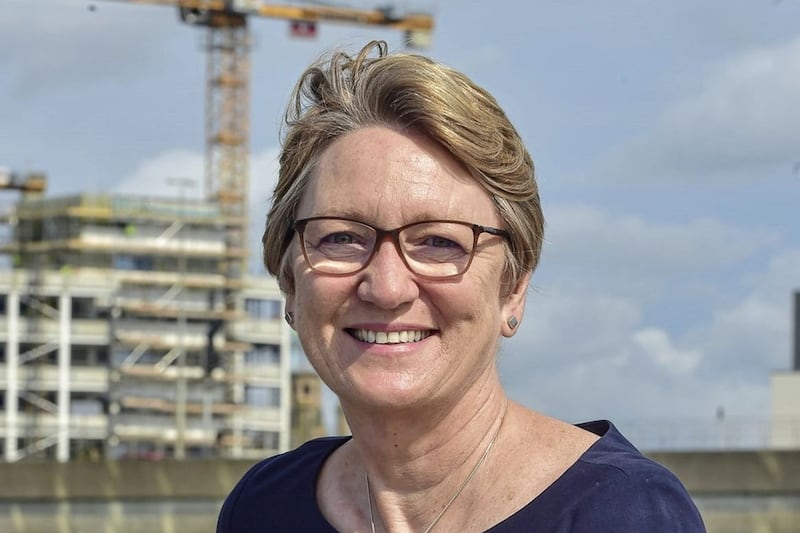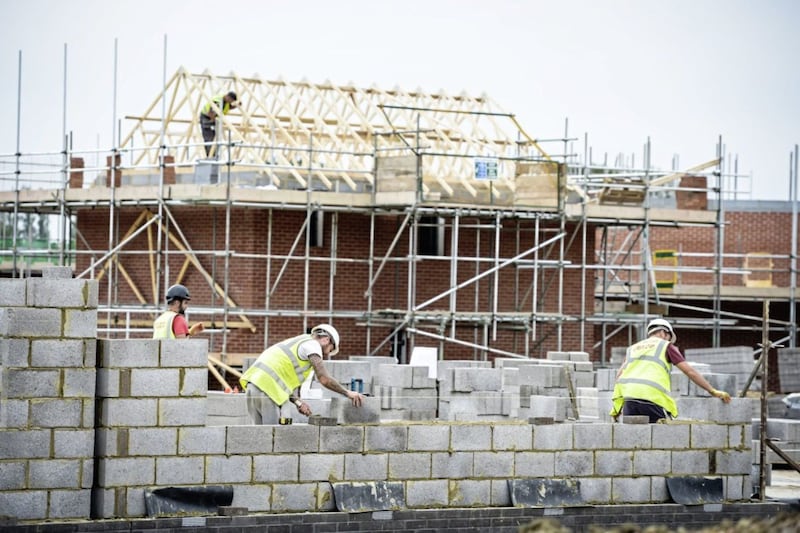GLOBALISATION is a word we seem to be hearing more and more often these days, and it is a word that has particular resonance in Northern Ireland.
A recent report from the Department for International Trade states that foreign direct investment projects increased here by 25 per cent last year; for the health of our economy we need to do everything we can to keep that figure high.
And with all of the recent talk about a potential no-deal Brexit and the UK's ambitions to do trade deals around the world, this feels increasingly so.
It is certainly important that we adapt to this environment, making it as easy as possible for local companies to ply their trade overseas and international investors to put their money into Northern Ireland. And we have the opportunity to do just that when it comes to the construction sector.
Until relatively recently, despite rapid globalisation, investment funds flowing across borders, and money being poured into constructed assets, there was no global language and framework to classify construction costs.
But work has been going on at a global collaborative level to address this issue. It has resulted in the creation of ICMS (the International Construction Measurement Standard), which has introduced a standard structure and format to bring greater consistency in classifying and reporting capital costs for construction projects.
Why is this important?
The fact that the reporting and costing methods used in the construction industry have significant variance across markets means that comparing projects around the world is difficult, investment risk is increased, and transparency is impeded.
This causes huge problems for cost consultants, quantity surveyors, construction economists, cost engineers and ultimately investors. Creating a common standard improves transparency, investor confidence and public trust.
The potential benefits of having ICMS include: improved investment and funding decisions; improved cost prediction and management; more consistent accounting; consistent and transparent benchmarking, and improved ability to identify the causes of differences in costs between projects.
From a Northern Ireland perspective, adopting ICMS would make this place more attractive to international investors - providing greater transparency, consistency and certainty for them. And we all know that investors like certainty.
Clients and governments are already requesting cost estimates and financial reports that are in line with ICMS. Highways England have recently announced that ICMS has now been embedded into their work structure procedures in order to ensure maximum benefit from the government's investment in infrastructure. When can we follow suit in Northern Ireland?
Ultimately, widespread adoption of ICMS in the construction market here could provide Northern Ireland with a competitive advantage and signal to potential investors that this is a market that they should be active in. It would also help ensure government projects are delivered in a consistent way, in line with best practice, helping achieve value for public money.
The need for accurate reporting of costs in construction and infrastructure projects is critical not only in terms of attracting investors but also for assessing the economic viability of projects and maximising their impact. And we know that investing in infrastructure in Northern Ireland is absolutely essential.
ICMS provides global consistency in reporting; the kind of consistency that inward investors increasingly demand and government projects need.
At present, ICMS is not centrally adopted in Northern Ireland and its usage in the private sector is patchy.
Our message is therefore very clear to the construction sector, government and other stakeholders - widespread adoption of ICMS provides the opportunity for significant competitive advantage. In such a global world, it is essential that we adopt the global standard.
:: Susan Mason is head of RICS in Northern Ireland, which represents more than 3,000 cross-sectoral members comprising of chartered and associate surveyors, trainees and students








